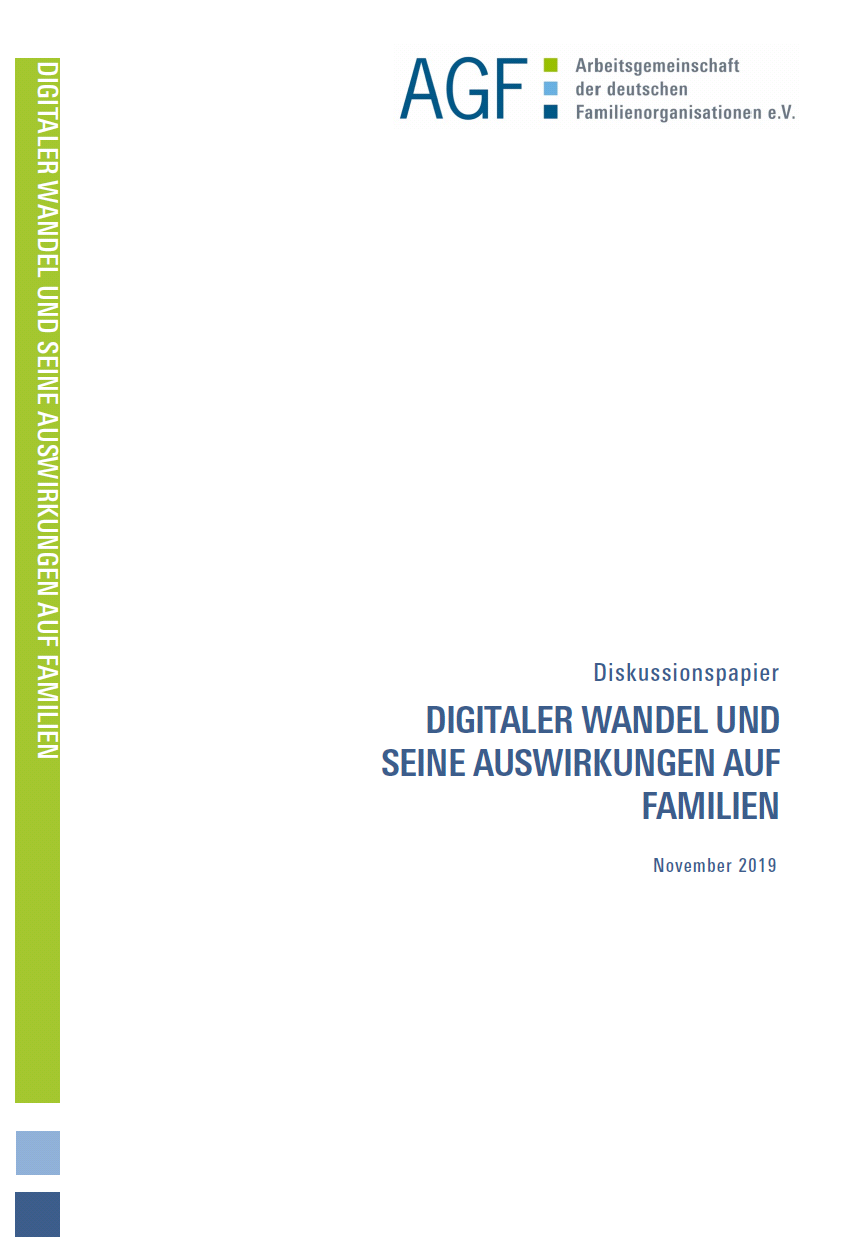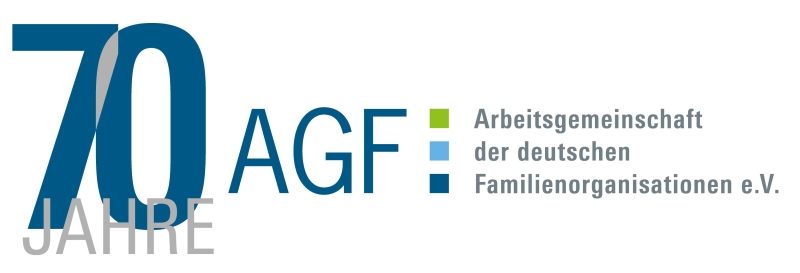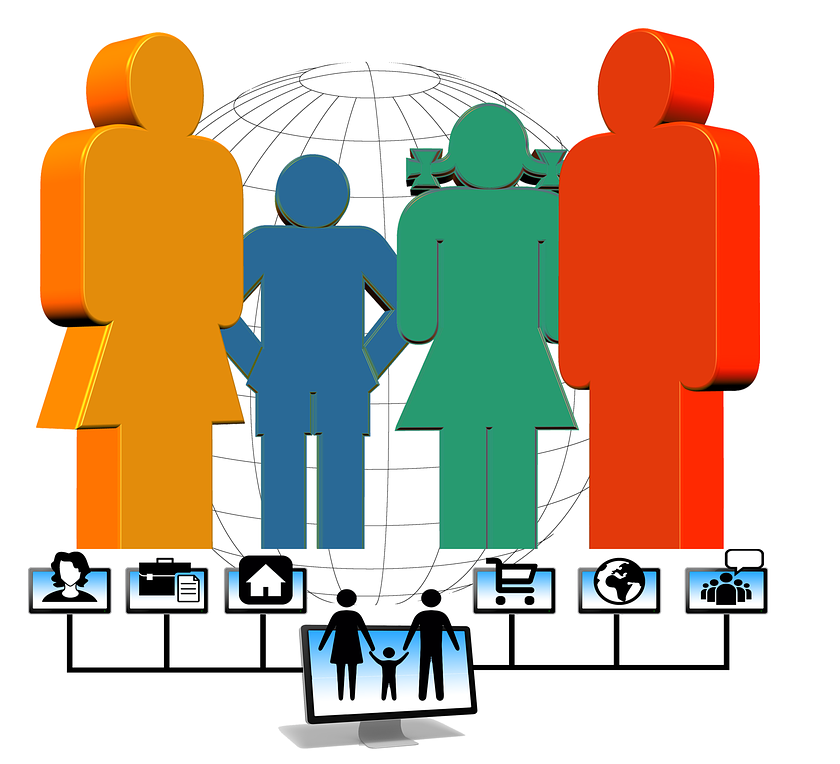
[28. 11. 2019] The AGF has published a discussion paper on “Digital Change”. The paper reflects on the impact of digitalization for different areas of life from the point of view of families. It takes a lifecourse perspective to discuss the consequences of digitisation for children, adolescents, parents and the grandparent generation as well as the influence on their relationships. The focus will be on how to balance the responsibility for promoting participation but also for the protection of vulnerable family members between private and public actors as well as families and their individual members.
The spread of digital media, communication and work tools has massively changed everyday life, communication and family relationships in recent years. This is currently particularly visible in intra-family conflicts over media use. Most families with children and adolescents are familiar with disputes about “screen time”. On the other hand, many families also appreciate the new, extended possibilities of communication and exchange between family members living far apart and the feeling of security they gain from the high accessibility of family members.
Working life, which has a particularly strong influence on the life situation of the middle generation of families,1 has for some years undergone change that has been significantly influenced by digitalization. The discussion about industry 4.0 leads us to expect further radical restructuring of the world of work. Family life can be influenced both by trends in the intensity of work and by new freedoms in work organization, with more flexible working hours and homeworking opportunities.
Digitalization has an impact not only on the relationship between parents and young children / adolescents but also on relationships between adult children and their increasingly dependent elderly parents and between grandparents
and grandchildren. At the same time, the digitalization of care and the dissemination of technical support and monitoring opportunities for older members raise new ethical questions for families.
In view of the rapid developments in the digitalization of all areas of life, we have deliberately chosen the form of a discussion paper, which formulates positions and open questions and thus represents a snapshot of the discussions taking place within and outside the Association of German Family Organizations (AGF).

